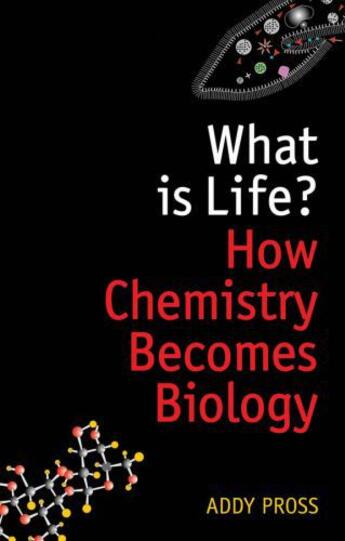Des idées de lecture pour ce début d'année !
Passionné(e) de lecture ? Inscrivez-vous
gratuitement ou connectez-vous pour rejoindre la
communauté et bénéficier de toutes les fonctionnalités du site !

Seventy years ago, Erwin Schrödinger posed a simple, yet profound, question: 'What is life?'. How could the very existence of such extraordinary chemical systems be understood? This problem has puzzled biologists and physical scientists both before, and ever since.
Living things are hugely complex and have unique properties, such as self-maintenance and apparently purposeful behaviour which we do not see in inert matter. So how does chemistry give rise to biology? Did life begin with replicating molecules, and, if so, what could have led the first replicating molecules up such a path? Now, developments in the emerging field of 'systems chemistry' are unlocking the problem. Addy Pross shows how the different kind of stability that operates among replicating entities results in a tendency for certain chemical systems to become more complex and acquire the properties of life. Strikingly, he demonstrates that Darwinian evolution is the biological expression of a deeper and more fundamental chemical principle: the whole story from replicating molecules to complex life is one continuous coherent chemical process governed by a simple definable principle. The gulf between biology and the physical sciences is finally becoming bridged.
Il n'y a pas encore de discussion sur ce livre
Soyez le premier à en lancer une !

Des idées de lecture pour ce début d'année !

Si certaines sont impressionnantes et effrayantes, d'autres sont drôles et rassurantes !

A gagner : la BD jeunesse adaptée du classique de Mary Shelley !

Caraïbes, 1492. "Ce sont ceux qui ont posé le pied sur ces terres qui ont amené la barbarie, la torture, la cruauté, la destruction des lieux, la mort..."